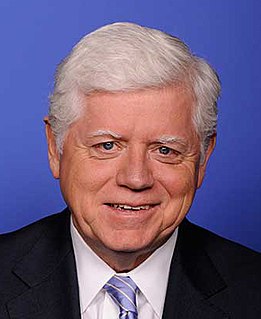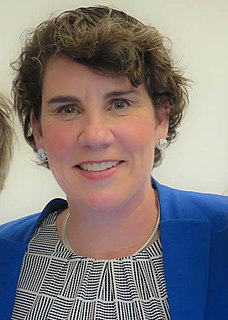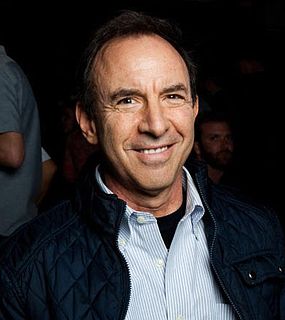A Quote by John E. McDonough
The impact of the ACA on larger businesses - especially those that self-insure - is far less than what they would experience in the standard commercial insurance market were they to go out and purchase traditional coverage.
Related Quotes
My biggest fear, that 27 percent of Americans under 65 have an existing health condition that, without the protections of the Affordable Care Act, would mean they would - could be automatically excluded from insurance coverage. Before the ACA, they wouldn't have been able to get insurance coverage on the individual market, you know, if you're a freelancer or if you had a small business or the like.
I moved my business to Mobile Insurance because they simply understand my business better than any other insurance agency. My prior agent didn't really understand my coverage. Mobile Insurance President Kurt Kelley came in and was able to explain those coverage issues in detail to me and my legal counsel. He also saved us money and found us better coverage.
There are fewer media writers in traditional settings. That is a beat that many legacy brands cannot afford. On the other hand technology writers are writing about media in ways they didn't before. As a consequence of the shift, there is less interest in many ways in the activities at some media. If you look at coverage of media as whole, the decision-making at the three broadcast networks and the cable channels, for instance, is much less of a focus than it once was. The guts of what goes on at Fox or CNN or MSNBC probably has less impact than it once did. It certainly gets less attention.
When I get hurt in the market, I get the hell out. It doesn't matter at all where the market is trading. I just get out, because I believe that once you're hurt in the market, your decisions are going to be far less objective than they are when you're doing well If you stick around when the market is severely against you, sooner or later they are going to carry you out.
We can all instinctively understand the idea of life insurance; most of us will feel an instinctive repugnance at the thought of the viatical industry, or 'dead peasants insurance.' As market thinking penetrated the life insurance industry, a moral line was crossed, and the application of market ideas was taken too far.
I think people forget that when people lose Medicaid coverage, they still show up at the hospital when they have a chronic illness or a traumatic impact on their health. And those bills are paid by the hospital who then passes those costs on. They do not have a magic fairy paying the bills for people who show up without insurance. Those bills are passed on to all the people in our country that do have insurance. That's why this bill is not going to break the cycle of higher premiums - because we're going to have fewer people insured.































